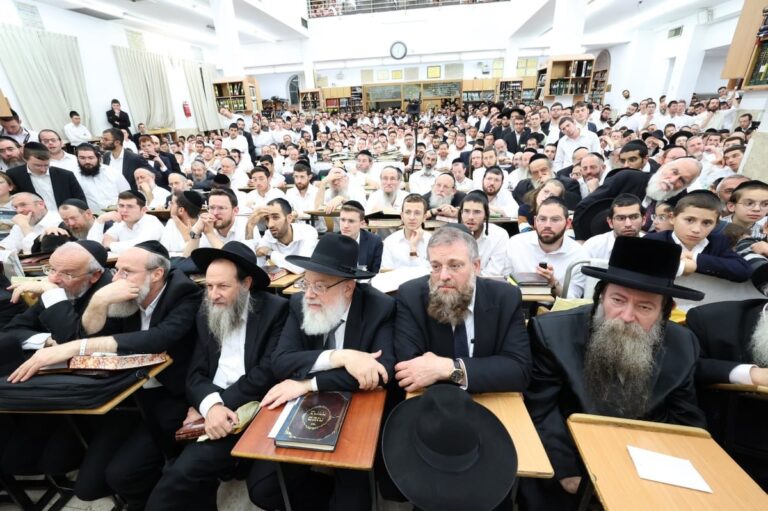 By Rabbi Yair Hoffman for the Five Towns Jewish Times
By Rabbi Yair Hoffman for the Five Towns Jewish Times
Abey Rotenberg is known for his legendary musical compositions. HaMalach haGoel Osi, will be sung by Klal Yisroel’s mothers putting their children to sleep for the next few centuries, at least. Rabbi Avrohom Yom Tov Rotenberg’s new Sefer on Eliyahu HaNavi, however, may likewise have just as a remarkable an impact on Klal Yisroel as his music. Not only is it a remarkable study in the way Chazal see Eliyahu HaNavi – the sefer creates a new genre of how to study the central figures of TaNaCh.
A central theme of Rabbi Rotenberg’s new English language sefer, published by ArtScroll, is Eliyahu HaNavi’s concern with preventing Chilul Hashem. Recent headlines, of course, make this a very timely contribution. The sefer is both a biography and an inspiring Mussar sefer at the same time.
What is fascinating is that Rabbi Rotenberg does not describe Eliyahu HaNavi in the past tense. Rabbi Rottenberg employs such terms as “is” and “says” throughout the work – because Eliyau HaNavi is still alive.
Eliyahu HaNavi was the great-nephew of Moshe Rabbeinu according to most opinions. This sefer is a comprehensive study of his life. He is called Eliyahu haTishbi. Rashi tells us that he came from a land named Toshav. Rav Dovid Kimchi (the RaDaK) tells us that Toshav is actually the name of a city. We also see him called HaGiladi. Gilead was on the other side of the Jordan river. He is called HaGiladi, however, (p. 31) because he brought the masses of its residents to Teshuvah (Pirkei DeRabi Eliezer) – one of the themes of highlighted in the sefer.
Why did Hashem choose to sustain Eliyahu haNavi through ravens? Metzudas Dovid (p.39) explains that it was a message to Eliyahu haNavi – have more compassion for Klal Yisroel! If a raven, known for cruelty can have empathy for you, upgrade and revisit your compassion for your brethren. Of course, this must be understood as a Dakei Dakos message – that Eliyahu’s “indifference” to their plight was on a very subtle level – but, nonetheless, the message comes through.
Although, Hashem’s message was certainly heard by Eliyahu haNavi, the subtle, barely detectable “indifference” perhaps changed to something else. We see that Eliyahu HaNavi still had some very exacting expectations of Klal Yisroel. He is angered at Klal Yisroel’s inaction regarding allowing the Neviim of Hashem to be killed. Hashem takes Eliyahu HaNavi to task for lashon Hara against Klal Yisroel (p.140).
Rabbi Rotenberg devotes an entire chapter (chapter 34) on Kanaus – zealotry for Hashem. It is an in-depth and fascinating study. He lists the five events in TaNaCh, where this zealotry was exhibited. Rabbi Rotenberg then analyzes them all with the tools of Klal Yisroel’s greatest meforshim. The final chapter is devoted to Eliyahu haNavi heralding in the era of Moshiach himself. May it come to pass speedily in our days.
The book is 426 pages, five appendices, and Haskamos from Rav Shmuel Kamenetsky, Rav Shlomo Miller among others as well.
This sefer is truly a remarkable work, destined to become a classic. Hopefully, it is the first of many works to come from Rabbi Rotenberg. Rabbi Rotenberg, is no stranger to chinuch, having taught Torah to Klal Yisroel for over a decade. We have all benefited greatly from his music, now it is time for us all to continue benefitting from his Torah. This author most certainly has.
The reviewer can be reached at [email protected]











One Response
You are surely not implying that this book, like Abey’s song, is putting people to sleep?